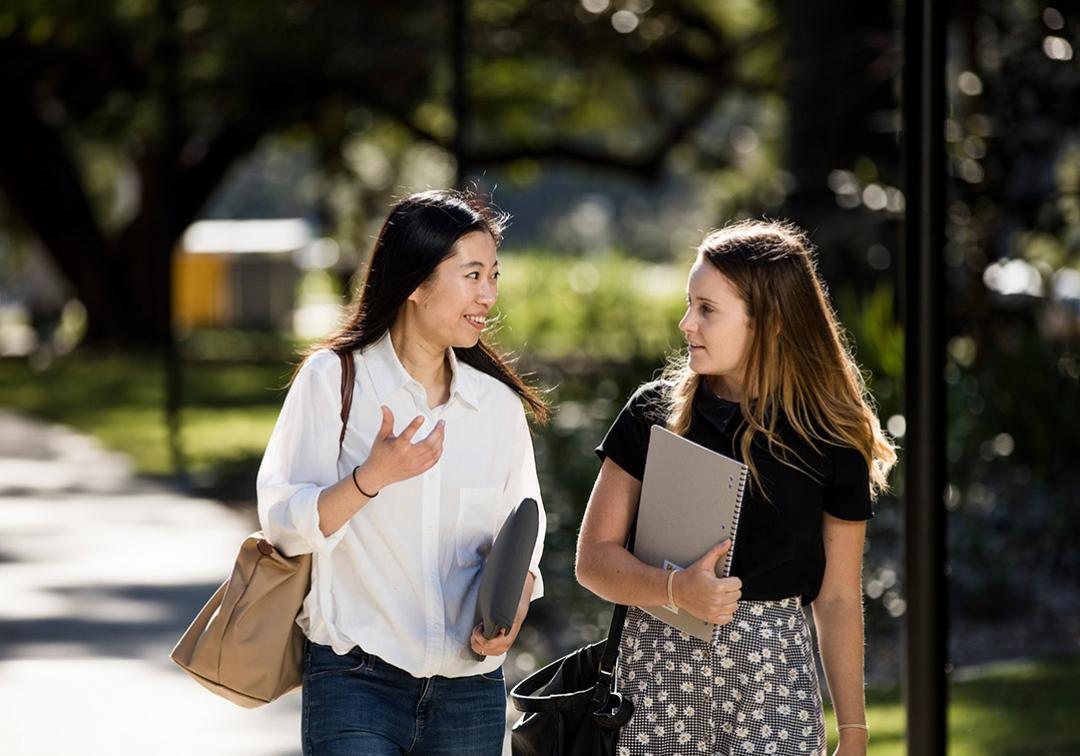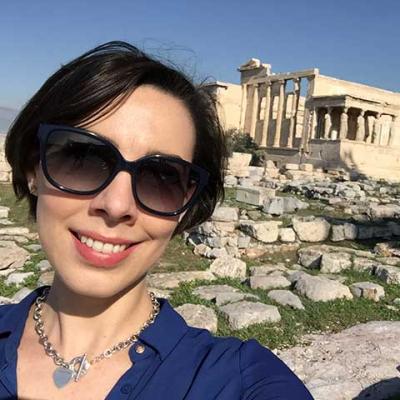
Master of Writing, Editing and Publishing
Overview
Gain the writing, editing, publishing, design and research skills to build a rewarding career in print or online.
In a world of rapid change, there has never been a greater demand for the mastery of the written word. The digitisation of the modern economy has created a raft of new job titles, all of which require expertise in writing and editing – in addition to the jobs that already drive Australia’s dynamic creative industries.
The Master of Writing, Editing and Publishing covers all stages of the writing and publishing process, and the skills needed to meet growing demands. During this program, you'll develop practical knowledge and experience in writing and editing across genres including creative writing, corporate and technical documents, academic research in the creative arts, advertising, marketing and more.
Your lecturers will include award-winning authors and arts industry professionals, as well as an array of guest lecturers with expertise in all aspects of professional writing and publishing. Together, they'll provide you with up-to-date insights and industry knowledge across traditional and new media.
You’ll learn about the continually evolving landscapes of the Australian and international publishing industries, and have the opportunity to intern at arts organisations, such as the highly respected University of Queensland Press, literary journals, educational publishers and trade publishers, including UQ’s own Corella Press, which specialises in rediscovering nineteenth century crime and mystery writers.
Program highlights
- Learn from award-winning authors and arts industry professionals.
- Develop practical knowledge and experience in writing and editing across a range of genres.
- Intern at highly respected journals and publishing houses.
- Become qualified to meet the growing demand for mastery of the written word.
How you'll learn
Your learning experiences are designed to best suit the learning outcomes of the courses you choose.
- Lectures
- Tutorials
- Work placements
- Research experience
What you'll study
At UQ, degrees are called 'programs' and subjects are called 'courses'. Here's a sample of the courses you could study in this program:
- Publishing and Professional Practice
- Fundamentals of Advertising
- Special Research Topic in Writing, Editing & Publishing
- Writing Creative Non-Fiction and Memoir
Career possibilities
Postgraduate study can take you anywhere. Here are some of the careers you could be on your way to:
- Author
- Editor
- Editorial writer
- Content writer
- Book editor
- Copywriter
- Digital editor
- Digital content writer
- Publishing executive
- Online publisher
Next steps after graduation
Our graduates have built rewarding careers in publishing, editing, and professional writing, with some going on to become best-selling authors and creatives.
Events
See all events
12 January - 12 January
Institute of Modern Languages High School Enrichment Program
Stories
See all stories
Study tips
How to fast-track entrepreneurial success with the lean startup method
7-minute read

Careers
How to become an entrepreneur: the ultimate beginner’s guide
3-minute read
Stories
See all stories
Study tips
How to fast-track entrepreneurial success with the lean startup method
7-minute read

Careers
How to become an entrepreneur: the ultimate beginner’s guide
3-minute read
Entry requirements
Entry requirements
It's possible to complete this degree in 1.5 years or 1 year depending on your qualifications and experience.
You can apply for any duration as long as you meet the entry requirements. You may also be eligible to apply for credit or exemptions to shorten your degree further. You'll graduate with the same qualification no matter how long you take to complete the degree.
1.5-year degree (24 units of study)
To be eligible to complete the degree in 1.5 years full-time (or part-time equivalent)full-time (only available as full-time study), you'll need:
- an applicant must submit a ten page portfolio for the review of the Program Convenor (see below), and have either
- a bachelor's degree (or equivalent) in a relevant discipline (see below), or
- a graduate certificate* in writing, editing and publishing, or
- a bachelor's degree (or equivalent) in any discipline plus 2 years full-time equivalent relevant work experience (see below).
You must have a grade point average (GPA) of 4.5 on a 7-point scale in your previous qualification.
*Please note if a graduate certificate is used as the basis of entry into the program and you do not have a degree in the relevant discipline, you will not be eligible for credit towards the Masters program.
1-year degree (16 units of study)
If you have relevant prior learning or experience, you can reduce the number of courses you need to complete and graduate in less time.
To be eligible to complete the degree in 1 year full-time (or part-time equivalent)full-time (only available as full-time study), you'll need:
- an applicant must submit a ten page portfolio for the review of the Program Convenor (see below), and
- a bachelor honours degree** (or equivalent) in a relevant discipline (see below).
You must have a grade point average (GPA) of 4.5 on a 7-point scale in your previous qualification.
** You must have completed a substantial research project in your Honours degree equivalent to at least one semester of full-time study (or part-time equivalent).
Relevant disciplines for previous qualifications
Relevant disciplines include English, English literature, writing, journalism, communication, art history, history, law as well as other relevant fields from the humanities and social sciences.
You must have completed a minimum amount of content in a relevant discipline, this would be at least a major, field of study, or approximately 30% of program content in the discipline, including a mix of introductory and advanced courses.
*Please note if the GCArts or GDipArts or GCWEP is used as the basis of entry into the program as you do not have an existing approved degree in the same discipline, you will not be eligible for credit towards the Masters program.
Relevant work experience
Relevant work experience includes work using writing and editing in a professional or volunteer context. Relevant work experience includes work in: government departments, office management, corporate communications, administration, journalism, and public relations, among others, which should be supported with evidence outlined below.
Evidence of relevant work experience should include a letter from your employer (and/or previous employers) stating the following:
- that you work (or worked) within the specified organisation
- the nature of your work, including any relevant duties and responsibilities
- the length that you were there (i.e. 2 years)
- the level at which you worked (full-time, part-time or casual). If part-time or casual, please list the average amount of hours worked per week.
Related programs
Depending on your previous qualifications and current goals, you might want to consider
one of these related programs:
English language requirements
IELTS overall 7; reading 7; writing 7; speaking 7; listening 7. For other English Language Proficiency Tests and Scores approved for UQ
TOEFL iBT (including Paper Edition) - Overall 100, listening 25, reading 25, writing 27, speaking 24.
PTE Academic - Overall 72, sub bands minimum 73.
CES - Overall 185, All sub bands minimum 186.
BE and OET are not accepted.
There are other ways to meet the English language requirements. For some programs, additional conditions apply.
Student visas
International students who are accepted into full-time study in the Master of Writing, Editing and Publishing are eligible to apply for an Australian student visa (subclass 500).
There are a number of requirements you must satisfy before a visa is granted, including the Genuine Student (GS) requirement.
Additional application information
Portfolio Criteria:
The portfolio allows applicants to showcase their writing skills while also demonstrating their readiness for graduate-level study. These criteria are designed to assess current abilities and future potential.
1. Quality of Writing
2. Variety of writing samples
3. Editing skills
4. Professional presentation
5. Potential for growth
Additional application information
<10>
<10>
Portfolio Criteria:
<10>The portfolio allows applicants to showcase their writing skills while also demonstrating their readiness for graduate-level study. These criteria are designed to assess current abilities and future potential.
<10>1. Quality of Writing<10>
<10>
2. Variety of writing samples<10>
<10>
3. Editing skills<10>
<10>
4. Professional presentation<10>
<10>
5. Potential for growth<10>
Fees and Scholarships
Indicative annual fee
Approximate yearly cost of tuition (16 units). Your fees will vary according to your study load. Fees are reviewed each year and may increase.
$29,440
2025
Approximate yearly cost of full-time tuition (16 units). Your fees will vary according to your study load. Fees are reviewed each year and may increase.
AUD $43,200
2025
Government assistance
Financial aid
As an international student, you might be eligible for financial aid – either from your home country, or from the Australian Government.
FEE-HELP
Domestic students who are accepted into the Master of Writing, Editing and Publishing pay tuition fees.
FEE-HELP is an Australian Government loan scheme to assist eligible students with the cost of their tuition fees.
Centrelink support
The Australian Government offers a number of income-support payments to eligible Australian university students.
Scholarships
You may be eligible for more than 100 scholarships, including:
How to apply
Applying online
All international applications should be submitted to UQ. If you prefer, you can use an approved UQ agent near you.
The program code for the Master of Writing, Editing and Publishing is 5681.
This program is available in multiple durations. You can apply for any duration as long as you meet the entry requirements.
When you apply, select your preferred duration. If you don't meet the requirements for your first preference, we'll automatically consider you for entry into a longer duration.
Applying online
All domestic applications should be submitted to UQ.
The program code for the Master of Writing, Editing and Publishing is 5681.
This program is available in multiple durations. You can apply for any duration as long as you meet the entry requirements.
When you apply, select your preferred duration. You can also ask us to consider you for a longer duration if you don't meet the entry requirements for your first preference.
Important dates
The closing date for this program is:
- To commence study in semester 2 2025 - 5 May 2025 (with offer acceptance due 18 May 2025).
- To commence study in semester 1 - November 30 of the previous year.
Visa processing times vary. Apply and accept your offer as early as you can.
To learn more about UQ dates, including semester start dates, view the Academic Calendar.
Important dates
The closing date for this program is:
- To commence study in Semester 1 - January 31 of the year of commencement.
- To commence study in Semester 2 - June 30 of the year of commencement.
To learn more about UQ dates, including semester start dates, view the Academic Calendar.
Aboriginal and Torres Strait Islander applicants
For support with applying – or if you have any questions about university life – get in touch with our Aboriginal and Torres Strait Islander Studies (ATSIS) Unit.
Explore other programs
Express yourself. And your interest.
They say choosing a degree is hard, which is why we've made it easy. Register your interest and we'll send you everything you need to know about applying to UQ.






